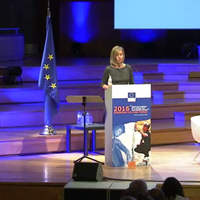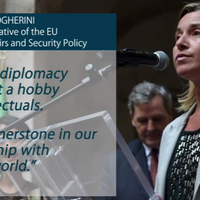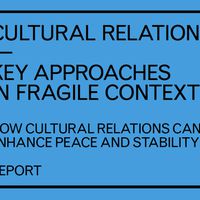EU adopts strategic approach to international cultural relations

The European Council adopted conclusions on an EU strategic approach to international cultural relations and establishing a framework for action by the member states and the EU institutions this week.
The conclusions establish the aim of strengthening the effectiveness and impact of EU foreign policy by integrating international cultural relations in the range of its foreign policy instruments. They recognise the need for a cross-cutting approach to culture and inclusiveness. The conclusions also call on members states, the Commission and the European External Action Service to strengthen coordination and strategic guidance on the best way to promote international cultural relations.
------------------
Cultural diversity and intercultural dialogue are an integral part of the values of the European Union and play an important role in promotion of human rights, tolerance, and non-discrimination across the world. The EU is focusing on its increasingly positive role in international relations.
The European Union aims to strengthen the effectiveness and impact of its foreign policy by integrating international cultural relations in the range of its foreign policy instruments, while recognising the need for a cross-cutting approach to culture. This was outlined in the Council conclusions on 8 April, that have established the EU strategic approach to international cultural relations and a relevant framework for action.
This is a further acknowledgement of the new EU cultural policy and the result of an awareness process which started in 2016 following the "Communication towards an EU strategy in international cultural relations". It is also the result of the work of five different Presidencies of the Council and the Friends of the Presidency Group.
The Conclusions also refer to the ‘New European Agenda for Culture’ of 2018 which aims to raise awareness of Europe's shared, diverse heritage and to use the full potential of culture in building a more inclusive and fairer Union. They will make the Council in all its formations better aware of the EU cultural strategy and allow better policy coordination among Commission DGs, Member States and cultural organizations.
The Conclusions also take stock of synergies and complementarity between EU and its Member States in international cultural relations, as mentioned in the joint Communication, such as the launch of the European Houses of Culture pilot project and its implementation by EUNIC, the umbrella organisation of EU national cultural institutes.
Similar content
posted on
25 Apr 2016
posted on
25 May 2017
posted on
30 Dec 2021
posted on
20 Oct 2014
posted on
23 Jan 2019
posted on
09 Jun 2016






